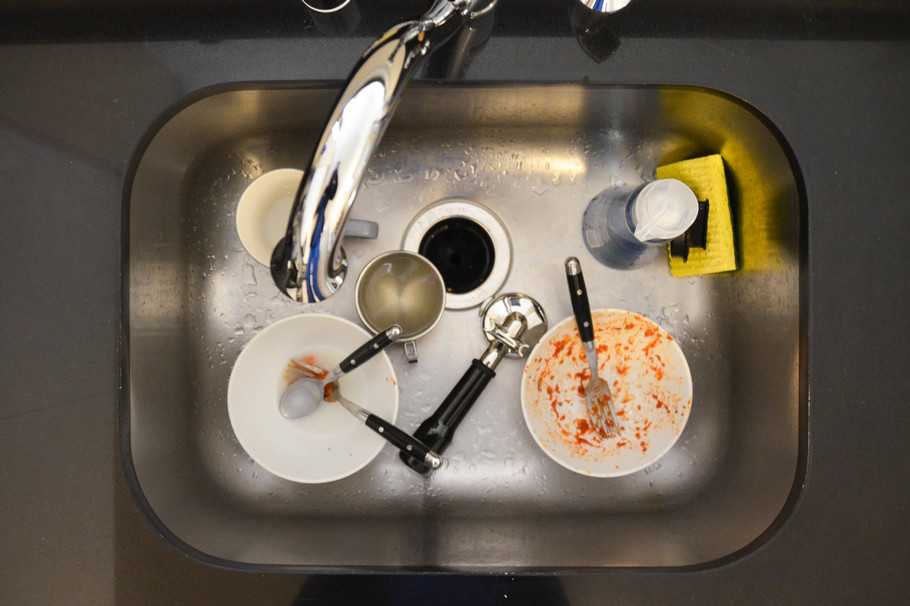There are so many articles on how to deal with depression. Those of us, including myself, who live with depression do the best we can every single day. But some days are better than others. That’s when I rely on my support system on the days I can’t get out of bed, leave my house, or just live a healthy life. I have some of the most incredible people in my life that are not only good friends but wonderful allies in dealing with my depression.
But it can be tough to be an ally to someone with depression— depression can manifest itself in different ways for different people. Some people can isolate themselves, keep it to themselves or push others away, all from a fear of hurting or burdening someone else with something they have no control over. I put out a call to my Spoon family, my social media outlets, and some personal friends to ask how we all can be the best allies we can be to those we love who have depression.
1. Listen

This the one thing everyone I talked to said they needed above all else. A lot of us need a judgment-free space to vent our thoughts, feelings, and frustrations, especially the kind that can be hard to communicate with anyone else. Listening does so much to feel like our feelings are valid, even when our innermost thoughts can shame us for having them in the first place. Whether your friend is talking with you over coffee or you are getting a long text message in the middle of the night, being a good listener is more than enough.
2. Offer Help in Anyway You Can

Many people with depression can get overwhelmed with everyday things like washing dishes, doing errands, going to therapy, cooking and other day-to-day responsibilities. Eventually, it becomes a vicious cycle. Offering to make a few freezer-friendly meals, give them a ride to their therapy sessions or just taking a small errand off their hands while you are doing your own can be so helpful during a bad depression bout. Ask your friend what small things you can do for them and I promise they will remember that moment of kindness for years to come.
3. Don’t Treat Your Friend Like a Fixer-Upper

Helping can be great, but there is a certain point where you might be treating your friend like a fixer-upper project and not as a person. This can be coming up with solutions to every single problem instead of listening to your friend in a vulnerable moment or saying “I want to help you because I miss who you were before your depression took over.” Avoid language that makes them feel weak for having depression. The point of helping is to empower your friend, not treat them like they are half a person for a chemical imbalance they can’t control.
4. Be Understanding and Empathetic

Depression is a strange breed of mental illness. Life can be perfect at any point and depression will manage to make everything seem like nothing matters. Feelings of sadness or hopelessness that stems from depression might not have a reason to it and can be confusing for anyone. Having someone be understanding and empathetic to the way we feel is so appreciated, even if you don’t fully understand the feelings yourself.
5. Be Flexible

This is one of the ways I personally feel supported by my friends. I sometimes break plans because I just can’t handle being out in the world that day. Friends that change “going out” plans to “I’ll come over and we can watch Netflix in your room and eat junk food” are ones that I’m forever grateful to have in my life. Knowing that someone loves me enough to say with one action, “I know you aren’t feeling the best but I want to be around you anyways because I love you” is what keeps me going on my worst days.
6. Reach Out

One of the worst things about depression is how easy it is to isolate ourselves from the people we love. I know that when I have moments when I think to myself “I’m not worth anyone’s time so I won’t bother my friends to say hi,” nothing snaps me out of that mentality like a text from my best friend saying “Hi! I love and miss you.” Reaching out can mean sending a daily text message, inviting them to a movie to get them out of the house, or even just saying “I love you. Let me know what I can do for you.” Reaching out in any way is a little thing you can do, but it means so much.
7. Respect The Need For Space

Many of my tips have advocated for a more active role, but some people need space to process their feelings and emotions. If a friend asks for some space, respect that. It may feel like they are distancing themselves from you or isolating themselves, but it may come from a place of needing to digest what they are going through without the need to put up a front for another person. Remember to remind them, and yourself, that you’ll be waiting for them when they are ready to reach out.
8. Have a Conversation with Your Friend

This is the most important tip I have to offer. My suggestions are broader than pinpointed because I asked for a general consensus outside my own personal preferences. It would be beneficial for both of you to have an honest one-on-one conversation in the ways you can help them feel loved and supported and vice versa. Take note of what they tell you on your phone and have it handy in case your friend needs it. It will help you feel more prepared to be a great ally, and your friend will feel so incredibly supported to have someone who would go out of their way for them.
If I have learned anything researching and speaking with people for this article, it’s that no one is unaffected by depression; either we have it or someone we love struggles with it. These tips aren’t just for people who don’t have depression who are friends with someone that does; people with depression can learn a thing or two on how to support their friends that struggle with the same mental illness in different ways. Whatever the case, I hope that these tips at least opens a conversation between friends and family members on how we can be there for each other. Just remember someone out there loves you and you are never alone.
If you or someone you know needs help, please consider contacting the National Suicide Prevention Lifeline at 1-800-273-8255 or text 741-741 to connect with a trained crisis counselor right away.


